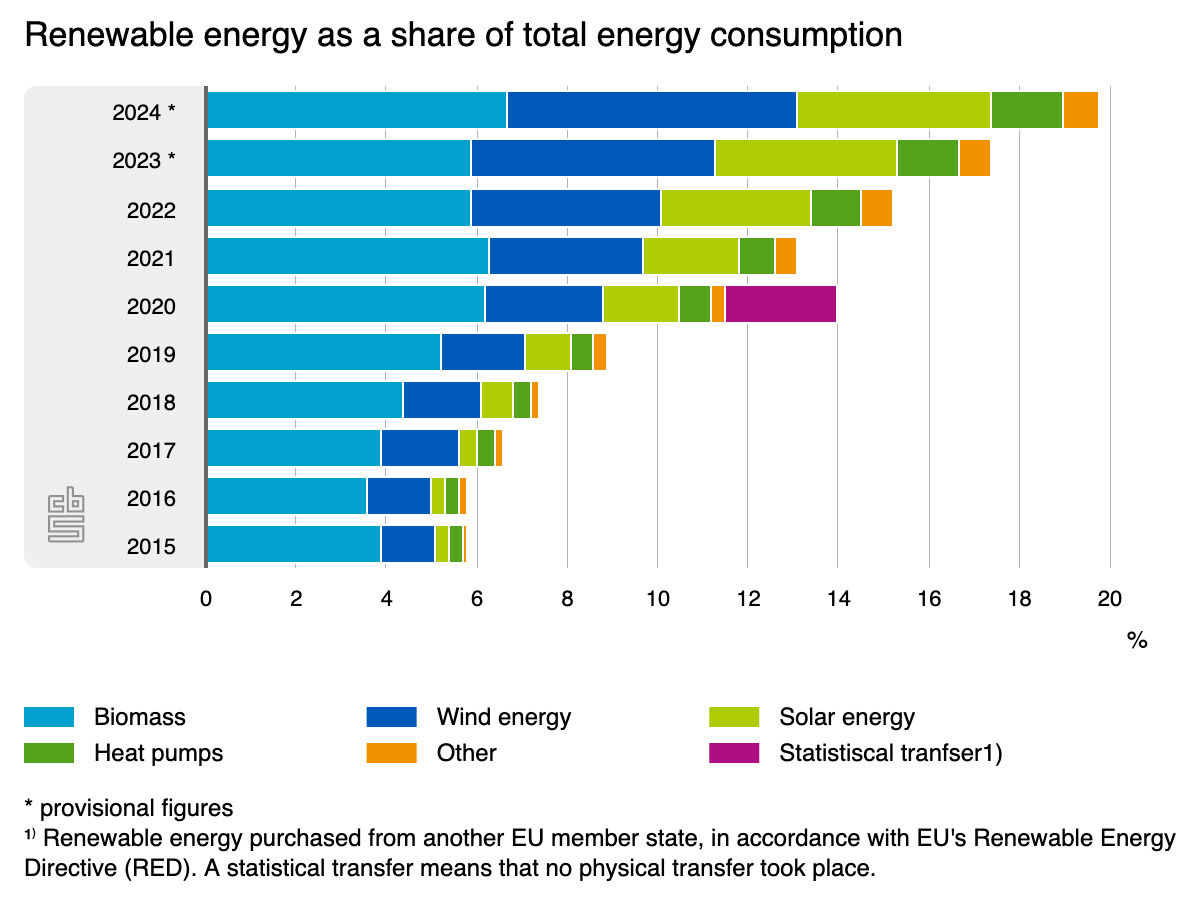Renewable energy share rises to nearly 20% of Dutch consumption

The share of renewable energy in the Netherlands rose to 19.8% of total energy consumption in 2024, up from 17.4% the year before, according to provisional figures from national statistics agency CBS.
The increase was mainly driven by the expansion of offshore wind power and greater use of biodiesel in road transport. Compared with five years ago, the share of renewable energy has more than doubled.
Biomass remains the largest source, followed by wind and solar. Total energy consumption rose 1% on the previous year.
Around 60% of renewable energy is used to produce electricity, 28% for heating and cooling, and 12% as transport fuel. This means that around half of the country’s electricity consumption now comes from renewable sources.
Solar power generation increased by 9%, although this was a smaller rise than in previous years. Fewer new solar panels were installed in 2024 because of pending changes in the regulations, and the year was also less sunny than 2023.
Electricity production from biomass, such as wood, manure and food waste, fell by 10%. This was largely because less biomass was burnt in coal power stations, where it can be used as a partial replacement for coal. Biomass is also controversial, with some arguing it is not a sustainable energy source.
Last year, Vattenfall abandoned plans to build a biomass plant in Diemen.
Thank you for donating to DutchNews.nl.
We could not provide the Dutch News service, and keep it free of charge, without the generous support of our readers. Your donations allow us to report on issues you tell us matter, and provide you with a summary of the most important Dutch news each day.
Make a donation